how to fix dry lips
Next to a large zit, there's nothing that can make you feel more self-conscious about your appearance than dry, chapped lips. The bleeding, the peeling, the large, painful cracks. Medically known as cheilitis, chapped lips are characterized by peeling, fissuring and cracking of the lip skin, says Shari Marchbein, MD, FAAD, a board-certified dermatologist and a fellow of the American Academy of Dermatology. While most people are prone to chapped lips in the winter, it can happen at any time of year and for a number of reasons.
"Your skin on the lips is much thinner and more sensitive than the skin on your arms and legs because it's meant to help your mouth absorb food," says Mary L. Stevenson, MD, a board-certified dermatologist and Mohs micrographic surgeon at NYU Langone.
Because of this, the skin on the lips is particularly susceptible to environmental stresses, like the wind, cold weather and sun damage, Stevenson says. "The lips don't contain oil glands, unlike other parts of the body, and so this predisposes it to dryness and chapping," Marchbein adds.
Here is everything you need to know about protecting your lips from the elements, and helping them heal when they do get chapped.
In this article
- What is the cause of chapped lips?
- Why it's important to protect your lips from the sun
- How to heal chapped lips
- What to look for in lip balms and ointments
- Best lip balms and ointments for chapped lips
What is the cause of chapped lips?
While environmental factors largely contribute to chapped lips, some lifestyle habits and health conditions can also affect the moisture in this delicate area. According to Stevenson, irritation from fragrances and flavors in lip products, yeast overgrowth, having a thyroid disorder, irritable bowel disease or autoimmune disorders, and even taking certain medications can cause dry, chapped lips. Some nutrient deficiencies have also been linked to dry, chapped lips. For instance, deficiencies in iron, vitamin B and folic acid have been associated with angular cheilitis, a common skin condition marked by fissures, scaling or crusting in the corners of the mouth.
But one of the biggest — and preventable — causes of chapped lips that many people don't realize is lip licking.
"Lip licking and lip smacking are common behaviors for those with dry, chapped lips, but it actually makes the problem worse. When someone is feeling chapped, they may lick their lips or smack them together to moisten them," Marchbein says. "Although this may lead to temporary relief, as the moisture evaporates from their lips, it actually causes more dryness and chapping," she explains.
Stevenson also says that dental work and having allergies can affect your lips. "People might have a reaction to an allergen, which can cause irritation and dryness in the lips," she says. "It could be something in your toothpaste or the prosthetics in your mouth that might be causing the problem, so people should see their doctor about patch testing."
"Lip dryness and irritation can occur year-round, especially if there is a component of eczema or contact dermatitis, meaning your lips are coming in contact with something you're allergic to," Marchbein says.
Why it's important to protect your lips from the sun
Stevenson and Marchbein stress the importance of protecting your lips from the sun daily because sun damage can happen at any time, even on a rainy, cloudy day. "If you're going skiing, there's still white light reflecting from the sun on the snow. Just because you don't think the sun is out, you should still be protecting your lips," Stevenson says.
In the summer, you can get dry, chapped lips from extended exposure to UV rays, which can also put you at risk for actinic keratosis, a precancer that forms on the face, lips, ears and scalp. Unlike melanoma which is usually characterized by unusual moles, lumps and markings, actinic keratosis appears as small, dry, scaly or crusty patches of skin, according to the Skin Cancer Foundation. These patches of skin can be red, light, dark tan, white, pink or flesh-toned and can be flat or raised. Actinic keratosis that forms in the lips is known as actinic cheilitis.
"The lips are not an uncommon, but often overlooked site, of precancerous lesions and skin cancers and can be particularly aggressive in this location," Marchbein says. "Because the bottom lip typically protrudes past the top, it is prone to sun damage. Be sure to wear SPF lip balms in the summer to protect from sun damage and skin cancers," Marchbein explains.
To help protect your lips, Stevenson recommends wearing a lip balm with a minimum of SPF 30 every day before applying makeup. If you don't have a lip balm with SPF 30, Stevenson says you can smear some of your face sunscreen on your lips.
How to heal chapped lips
The best way to treat dry, chapped lips is using a gentle lip scrub and a lip balm that seals in moisture. For example, sugar is a great exfoliator because it's a natural humectant, meaning it draws in water from the deeper layers of the skin. "You want to be extremely gentle with exfoliation and not scrub your lips raw," Stevenson says. "Use a scrub with sugar or a warm washcloth. Just don't scrub it so hard that it can cause redness," she says.
"I exfoliate my lips gently a few times a week with a natural gentle sugar scrub, such as St. Ives Juicy Watermelon Lip Scrub because watermelon is known for hydration. Then, I follow it up with a healing ointment to help maintain and seal in hydration," Marchbein says.
Marchbein and Stevenson also say that you can use a humidifier in your bedroom at night to help moisten the air. "Staying hydrated by drinking plenty of water can also be helpful," Marchbein says.
Lastly, you want to avoid picking off flaky, dry skin. "This can lead to more inflammation, bleeding, rawness and irritation," Marchbein says. She also recommends holding off wearing lip glosses, lipsticks and stains and lip plumpers until your lips have completely healed. Using these products can contribute to more irritation and dryness in this delicate area.
If you don't see any improvements with your lips after following these approaches, schedule an appointment with a board-certified dermatologist to rule out the causes of chapping.
Treatment for chapped lips: What to look for in lip balms and ointments
When it comes to choosing the best lip balms for chapped lips, Stevenson says the most important thing is to avoid products with fragrances and flavors because they can irritate the skin even more. In addition to fragrances and flavors, you want to ditch menthol, salicylic acid and camphor in lip balms, according to the American Academy of Dermatology (AAD).
Ingredients that lock in moisture
"Look for lip balms with white petrolatum, lanolin, shea butter, beeswax and ceramides because they all lock in moisture," Stevenson says. Marchbein also likes lip ointments with glycerin because they're hydrating. Some people avoid petrolatum because it's a byproduct of petroleum oil. Unrefined petrolatum contains polycyclic aromatic hydrocarbons (PAHs) that are carcinogens, Stevenson says. But using white petrolatum, or USP petrolatum, conforms to the standards set by the United States Pharmacopeia and is safe to use.
The AAD notes that dimethicone, hemp seed oil, castor seed oil and mineral oil are other great ingredients for healing chapped lips. "Apply occlusive and emollient ointments liberally throughout the day to help prevent and treat chapped lips, especially before bed. We tend to lose the most heat and moisture from our skin overnight," Marchbein says. (FYI: occlusives attract moisture to the skin and create a protective barrier, and emollients work to smooth out and fill in the dry cracks in chapped skin.) For natural hydrating ingredients that you might already have in your pantry, Stevenson likes honey, seed oils and coconut oil.
Choose ointments over balms and chapsticks
Marchbein recommends using lip ointments over lip balms and chapsticks because they're free of preservatives and are more effective retaining moisture. While chapsticks can temporarily soothe dry lips, they tend to have chemicals and flavors that can further irritate the skin, and in severe cases, trigger eczema and allergic contact dermatitis, Marchbein says.
"They [chapsticks] can also lead to a vicious cycle of constantly needing to use them and swiping them on the lips, often followed by lip smacking, which perpetuates the cycle of chapping," Marchbein explains. "Lip ointments should be reapplied frequently throughout the day so that the lips never feel dry," she says.
Protect with SPF
For lip balms with SPF, Stevenson prefers products with physical blockers, like zinc oxide and titanium dioxide. "There's no harm in using sunscreens with chemical blockers, but physical blockers protect you from the sun by sitting on top of your skin whereas chemical blockers absorb the sun's rays," Stevenson says.
The best lip balms and ointments for chapped lips
To help you take the guesswork out of shopping for lip ointments and balms, here are some of Steveson and Marbein's top picks for soothing and preventing dry lips.
1. Aquaphor Healing Ointment
Stevenson and Marchbein recommend Aquaphor for its healing ingredients, which include petrolatum, mineral oil, lanolin and glycerin. In addition to restoring moisture to cracked lips, this multi-purpose ointment can help alleviate dry hands and feet and treat minor cuts and burns.
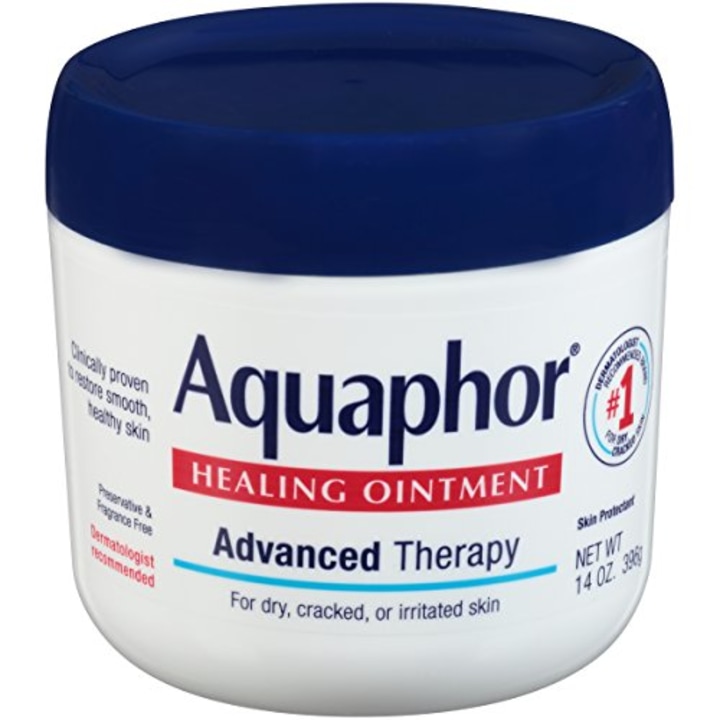
2. Vaseline Petroleum Jelly
One of Marchbein's go-to products, Vaseline's petroleum jelly is made with one key ingredient: 100 percent USP white petrolatum. For those who are allergic to lanolin, this petrolatum-based ointment hydrates a dry pout and has zero flavors, fragrances and additives that may irritate sensitive skin.
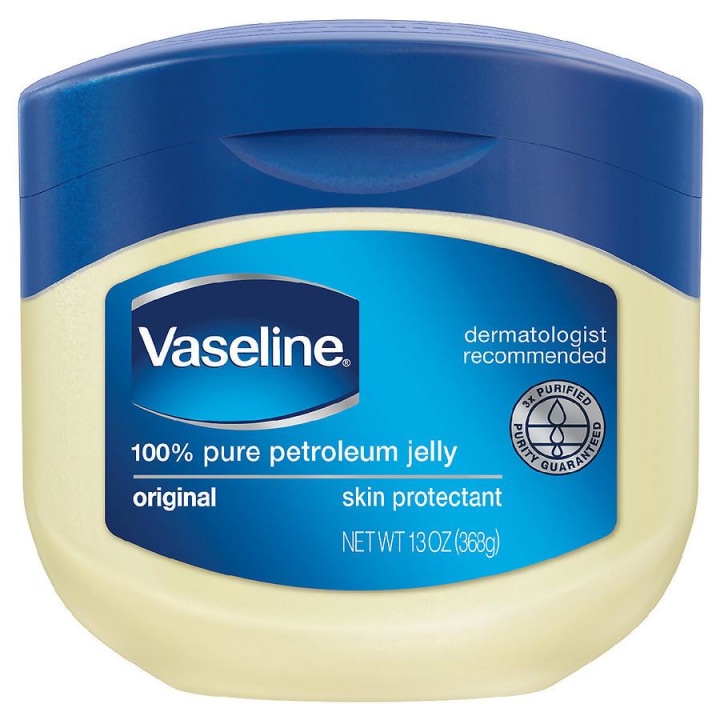
3. Maya Chia Supercritical Chia Waterless Wonder Balm
Stevenson never leaves home without her Maya Chia waterless wonder balm, which she applies to her face and lips day and night. Moisture-boosting beeswax, chia seed oil and shea butter get deep into the cracked crevices of your lips to restore a healthy, youthful shine. Unlike other lip balms that use synthetic fragrances, this orange blossom balm relies on essential oils and botanical extracts for its zesty scent.
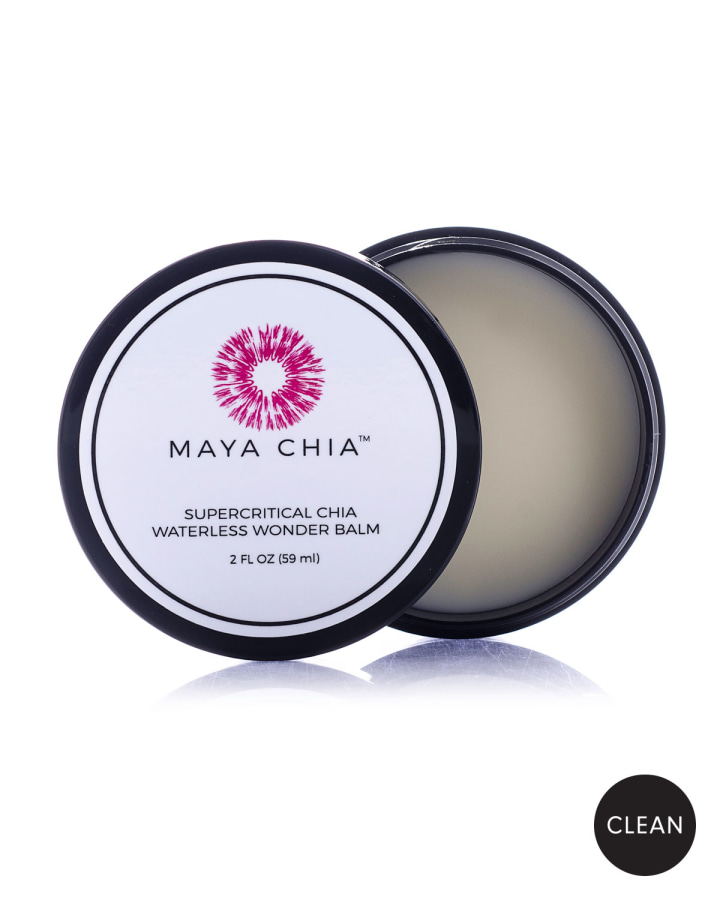
4. Cerave Healing Ointment
Formulated with petrolatum, hyaluronic acid and ceramides, this hydrating ointment breathes new life into dry, cracked lips by reviving and strengthening the skin's natural barrier. It's no wonder Marchbein say it's one of her top recommendations. Free of lanolin, fragrances, preservatives and dyes, this is another great choice for those with sensitive skin.
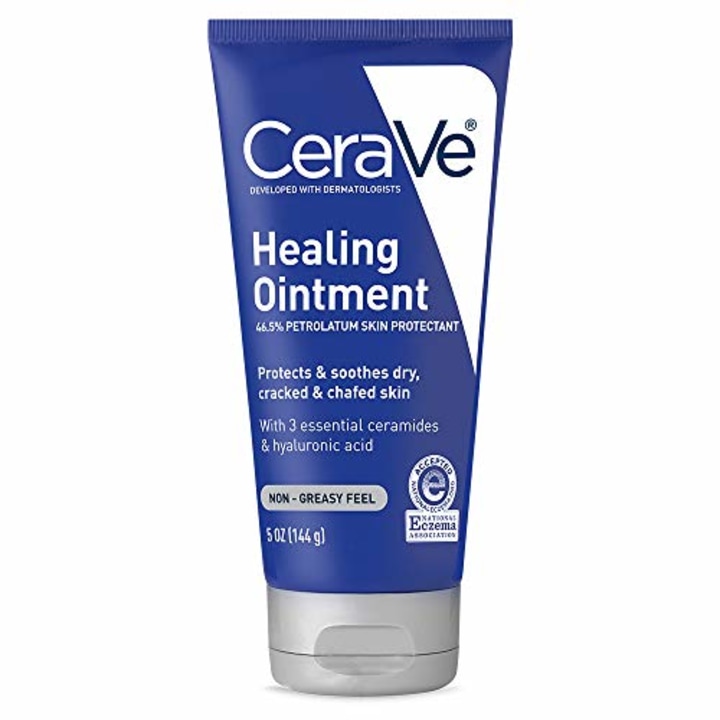
5. Fresh Tinted Lip Treatment, SPF 15
For a soothing lip treatment that also provides some color, go for this tinted lip balm, which comes in 13 shades and two different finishes — satin and shimmer. "These tinted lip balms double as lipstick and are perfect for protecting the delicate skin on the lips while outside," Marchbein says. Sugar, grapeseed oil and meadowfoam and black currant seed oils are the star ingredients that work together to prevent moisture loss while softening rough skin. While this lip balm is a little lower in SPF than what's recommended, it still provides some protection.
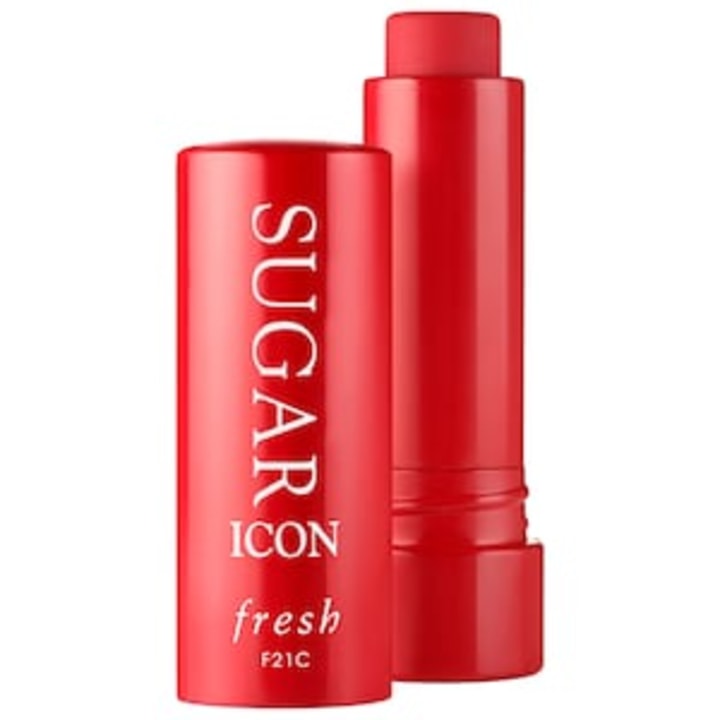
6. Colorscience Sunforgettable Lip Shine, SPF 35
Shield radiant lips from the sun with this water-resistant lip gloss that supplies vitamin E, hyaluronic acid and dimethicones. Zinc oxide and titanium dioxide act as physical barriers against the sun's harmful UVA and UVB rays. Choose from four vibrant shades, including clear, which you can layer over your favorite lipstick or lip tint.
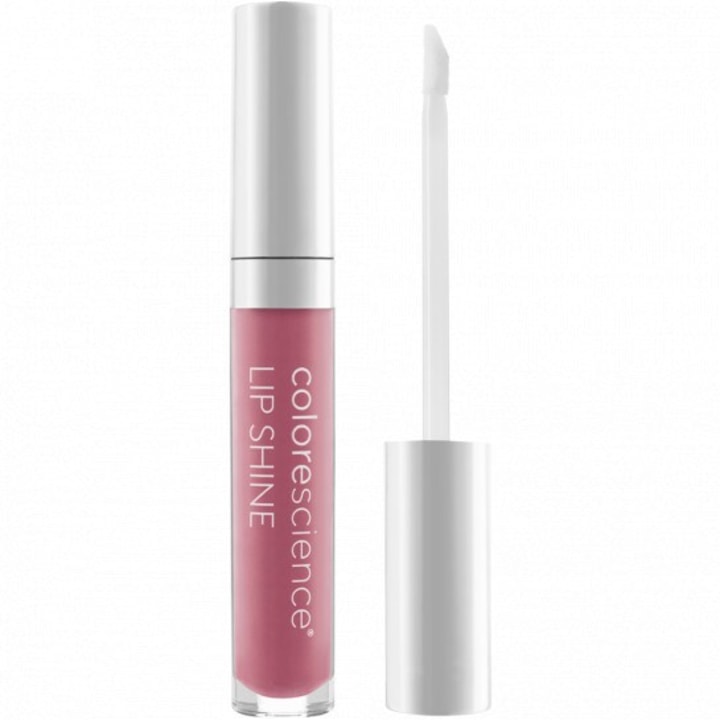
7. EltaMD UV Lip Balm Broad-Spectrum, SPF 31
This colorless lip balm makes it a neutral option for both men and women. "Lip balms need to be reapplied every two hours or sooner if the lips become wet. We often remember to apply sunscreen to our faces and body when outside but forget about the importance of protecting our lips from sun damage with an SPF lip balm," Marchbein says. Made with olive oil, beeswax, castor oil and vitamins C and E, this lip balm will calm irritation and leave your lips feeling silky smooth.
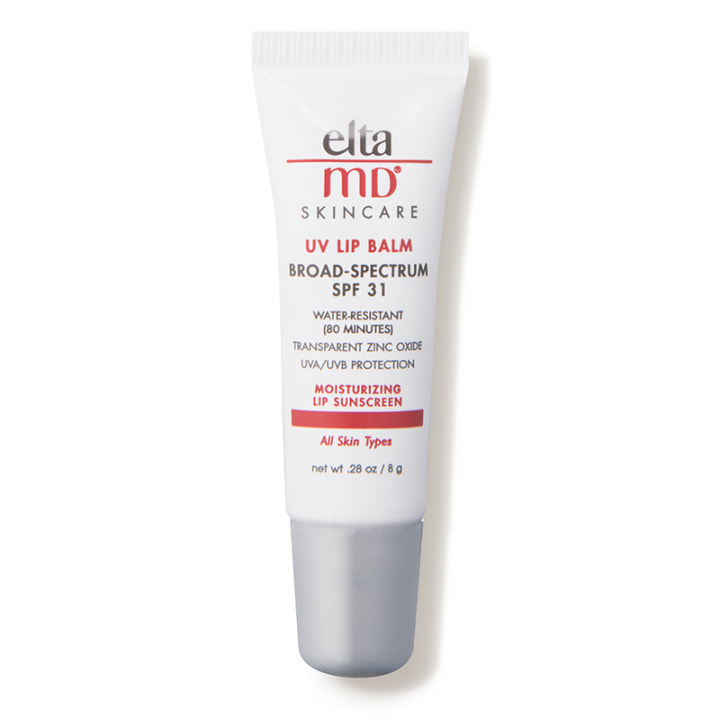
8. Doctor Rogers Restore Healing Balm
Stevenson likes this fragrance-free lip balm for its plant-based ingredients, especially if you're concerned about petrolatum and lanolin. Glycerin, castor seed oil and castor wax hydrate lips and replenish the skin's natural barrier. In addition to relieving dry lips, it can be used to help heal burns and scrapes and hold eyebrows in place.
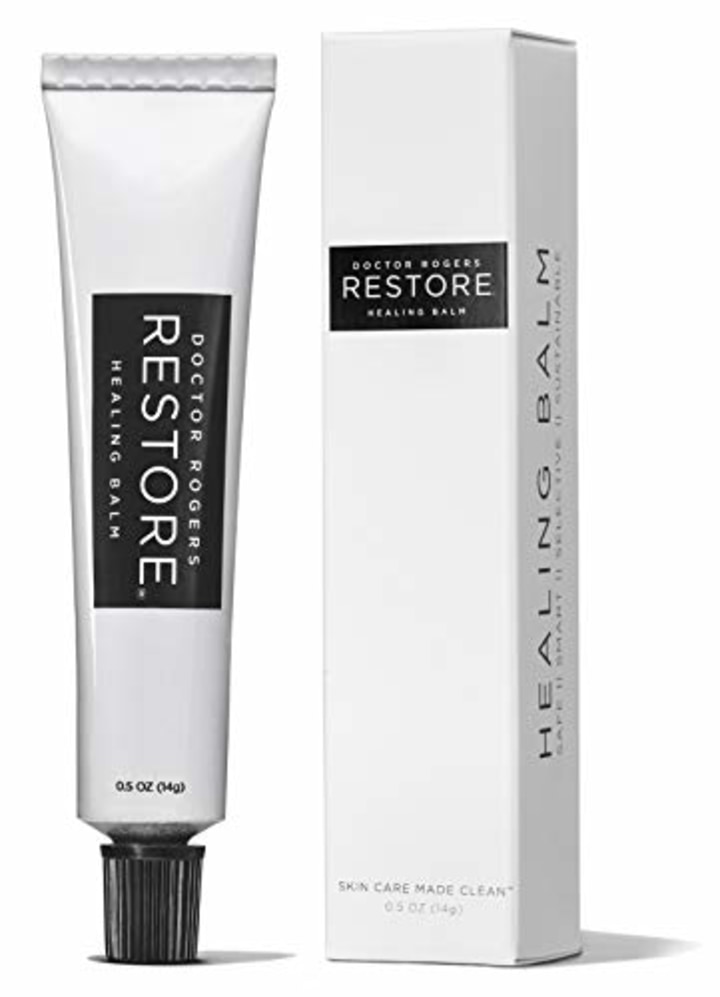
More Tips from Dermatologists
- How to reduce dark under-eye circles
- 5 DIY beauty recipes you can make at home
- Best dandruff shampoos
- A better way to take a shower
- The best skin care products for acne-prone skin
Want more tips like these? NBC News BETTER is obsessed with finding easier, healthier and smarter ways to live. Sign up for our newsletter and follow us on Facebook, Twitter and Instagram.
how to fix dry lips
Source: https://www.nbcnews.com/select/lifestyle/best-chapped-lips-treatments-balms-ncna1138176
Posted by: wooddrefoldn.blogspot.com

0 Response to "how to fix dry lips"
Post a Comment